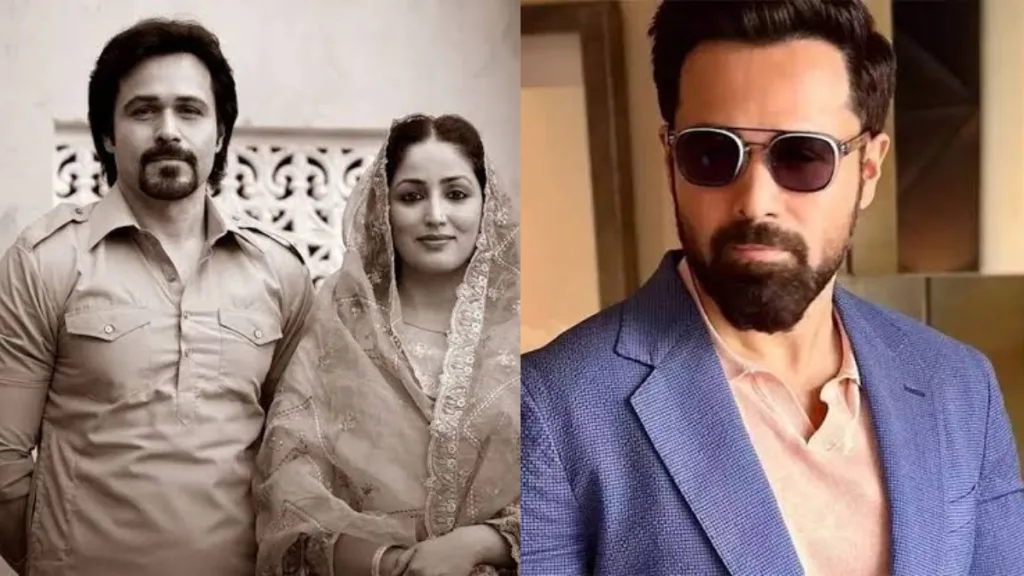Emraan Hashmi is firmly defending his upcoming legal drama, Haq, after its trailer sparked both praise and criticism. The film, which sees Hashmi in a new avatar alongside Yami Gautam (who plays a character inspired by the lead litigant), is inspired by the landmark Shah Bano Case. This historic case was pivotal in establishing divorce rights and maintenance for Muslim women in India.
While many lauded the film’s concept, some critics felt it was unfairly targeting or maligning the Muslim community. However, in a recent interview, Hashmi strongly countered this view, asserting that the film “does not point fingers at any community” and presents a sensitive and balanced perspective on a complex legal and social issue.
Hashmi’s Stance on Community Sensitivity and Secularism
Speaking with ANI, the actor explained that when approaching the script, he had to consider the sensitivity surrounding his own community, something he hadn’t focused on in his creative choices before. “For the first time in my career, I had to see that there is a sensitivity regarding a community, regarding my community… I have to be a little cognisant, and I have to analyse it in a different way,” he stated. Hashmi emphasized his role as a “liberal Muslim” who saw no problem with the film’s viewpoint because it was carefully constructed to avoid malice.
He stressed that the narrative maintains a “very balanced point of view” and is not “maligning” or passing judgment on any group. Hashmi added that if the script had contained elements that were detrimental or unfairly critical of the Muslim community, he “wouldn’t have done this film.” He believes that the film focuses on legal and personal aspects rather than making broad, negative statements about an entire religion or its followers.
To further illustrate his secular upbringing and perspective, Hashmi shared personal details about his family’s diversity. He mentioned: “I married Parveen, who is a Hindu. Meri family mein mere bete puja bhi karte hai, namaaz bhi padhte hai. This is my secular upbringing.” This background, he suggests, informs his ability to assess the film’s neutrality. He concluded that every viewer’s interpretation will be influenced by their own conditioning, religious tenets, upbringing, environment, and viewpoint, suggesting that critics might be projecting their own biases. He is confident that the film itself offers an objective, respectful look at the facts.
Understanding the Significance of the Shah Bano Case
The film’s inspiration, the Mohd. Ahmad Khan v. Shah Bano Begum case, stands as a legal and social milestone in the fight for Muslim women’s rights and maintenance in post-divorce life in India. The case centered on a petition filed in 1978 by 62-year-old Shah Bano, a mother of five who was seeking maintenance from her affluent and well-known lawyer ex-husband, Mohammed Ahmed Khan, after he divorced her.
The legal battle highlighted the conflict between India’s secular criminal law (specifically Section 125 of the Code of Criminal Procedure, which mandates maintenance for indigent wives, children, and parents) and the traditional interpretations of Muslim personal law. The case was appealed all the way to the Supreme Court, which finally ruled in 1985 that Shah Bano was indeed entitled to maintenance under Section 125, emphasizing that this secular law applied to all citizens regardless of their religion.
However, the ruling quickly became a highly politicized issue, leading to massive protests from conservative Muslim groups who viewed the verdict as an intrusion on Sharia law. In response to this political pressure, the then-ruling Rajiv Gandhi government enacted the Muslim Women (Protection of Rights on Divorce) Act in 1986. This new legislation essentially nullified the Supreme Court’s verdict, limiting a divorced Muslim woman’s right to maintenance to the iddat period (approximately three months), effectively shifting the burden of support back to her family or the Wakf Board, rather than the ex-husband, thereby undermining the legal rights established by the 1985 ruling. The Shah Bano case thus remains a crucial, and controversial, touchstone in debates over secularism, gender justice, and personal law in India.
All About the Film ‘Haq’
Haq, which aims to bring this complex history to the screen, is directed by Suparn S Varma and also features Vartika Singh, Danish Husain, Sheeba Chadha, and Aseem Hattangady in prominent roles. Produced by Vineet Jain, Vishal Gurnani, Juhi Parekh Mehta, and Harman Baweja, the film is scheduled to release in theatres on November 7.

